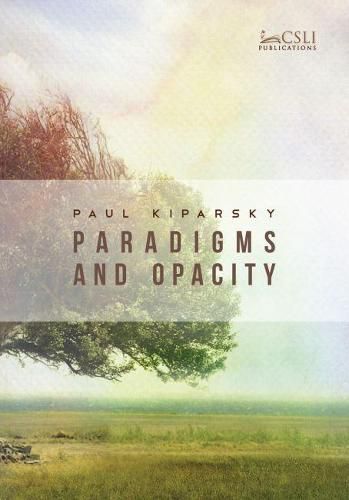Readings Newsletter
Become a Readings Member to make your shopping experience even easier.
Sign in or sign up for free!
You’re not far away from qualifying for FREE standard shipping within Australia
You’ve qualified for FREE standard shipping within Australia
The cart is loading…






Stratal Optimality Theory (SOT) is a comprehensive theory of sound structure and its relation to word structure that integrates the complementary theoretical insights of lexical phonology and classical optimality theory. Paradigms and Opacity explores the many facets of SOT. Volume One focuses on constraint interaction and provides a principled solution to the problem of opacity: how, why, and when do constraints systematically apply where they apparently shouldn’t, or fail to apply where they apparently should? Analyzing evidence from a variety of languages-including English, Finnish, Arabic, Yowlumne Yokuts, Kashaya, Maltese, Dutch, Basque, Tigrinya, Spanish, and Catalan-Paul Kiparsky compares SOT with alternative theories, arguing that it is formally cleaner and makes better sense of a range of empirical phenomena.
$9.00 standard shipping within Australia
FREE standard shipping within Australia for orders over $100.00
Express & International shipping calculated at checkout
Stratal Optimality Theory (SOT) is a comprehensive theory of sound structure and its relation to word structure that integrates the complementary theoretical insights of lexical phonology and classical optimality theory. Paradigms and Opacity explores the many facets of SOT. Volume One focuses on constraint interaction and provides a principled solution to the problem of opacity: how, why, and when do constraints systematically apply where they apparently shouldn’t, or fail to apply where they apparently should? Analyzing evidence from a variety of languages-including English, Finnish, Arabic, Yowlumne Yokuts, Kashaya, Maltese, Dutch, Basque, Tigrinya, Spanish, and Catalan-Paul Kiparsky compares SOT with alternative theories, arguing that it is formally cleaner and makes better sense of a range of empirical phenomena.